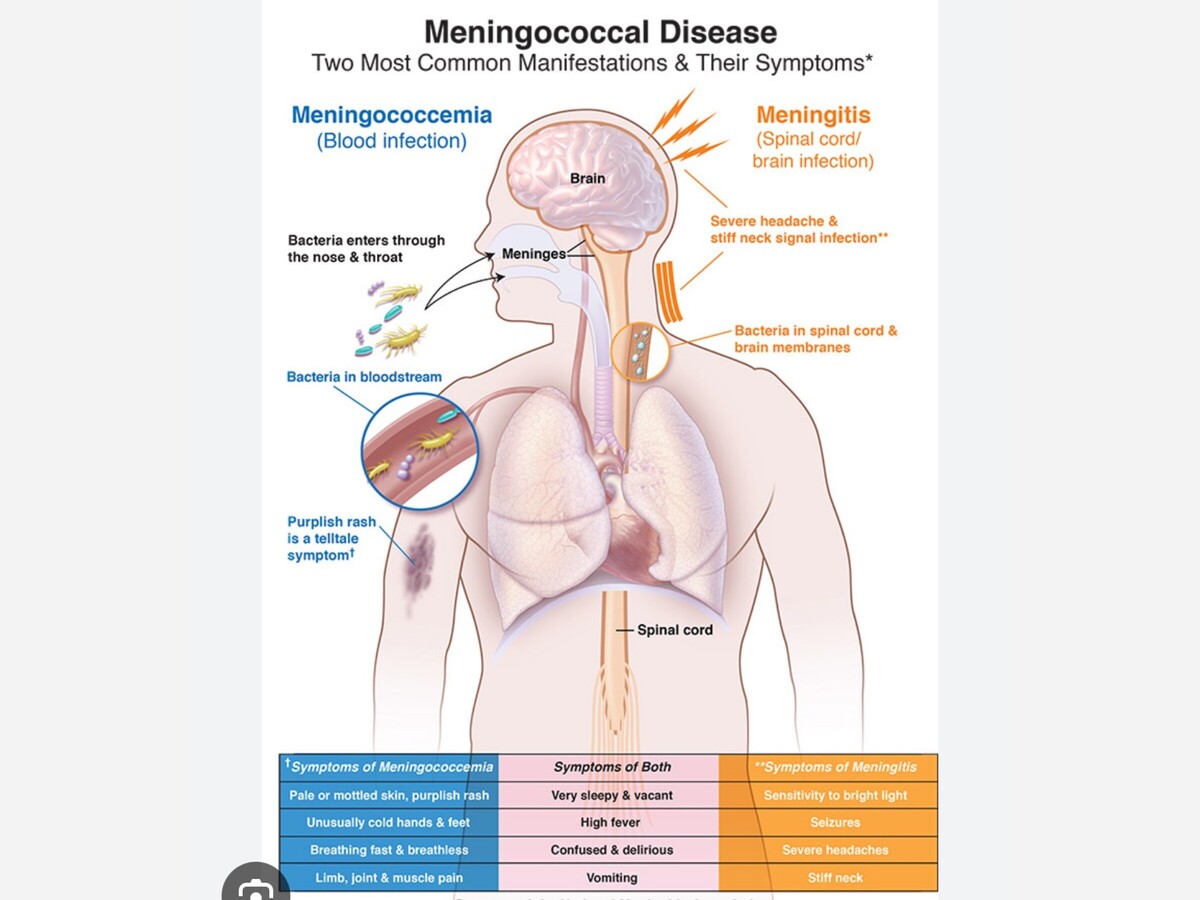Image


According to the New Mexico Department of Health via an advisory sent to schools and students in the Spring of 2023, All students entering 11th grade who are 16 years and older, will be required to get a second dose of a vaccine called Meningococcal ACWY or MenACWY. If a teen is not yet 16, but is entering 11th grade, then the parent must wait until the teen turns 16 to get the booster.
Boosters given before age 16 don’t count and would have to be repeated.
Most students have had the first dose of this vaccine at age 11 or 12, since New Mexico schools have required the first dose since 2019.
To go along with experts’ advice, teens need a booster dose of MenACWY at age 16.
Meningococcal meningitis is rare, but strikes quickly and can be devastating, even resulting in death or disability. Teens and young adults are at high risk of getting sick with meningococcal meningitis, which is why this is the best time to boost their immunity
Per stats from the New Mexico Department of Health, in 1994, seven cases of meningococcal disease were confirmed in five rural New Mexico communities, resulting in an attack rate of 200 per 100,000 people. In 2019, four cases of invasive Neisseria meningitidis(NM) disease were reported, which is 0.07 per 100,000 people. None have been reported more recently but health care providers are on alert.
Suspected or confirmed cases of meningococcal disease should be reported immediately to the New Mexico Department of Health's Epidemiology and Response Division (ERD) at (505) 827-0006. The information needed includes the patient's name, age, sex, race, ethnicity, home address, phone number, occupation, and health care provider.
On March 28th, 2024 the CDC issued an advisory, the Centers for Disease Control and Prevention (CDC) is issuing this Health Alert Network (HAN) Health Advisory to alert healthcare providers to an increase in invasive meningococcal disease, mainly attributable to Neisseria meningitidis serogroup Y.
In 2023, 422 cases were reported in the United States, the highest annual number of cases reported since 2014. As of March 25, 2024, 143 cases have been reported to CDC for the current calendar year, an increase of 62 cases over the 81 reported as of this date in 2023.
A specific meningococcal strain, sequence type (ST) 1466, is responsible for most (101 of 148, 68%) serogroup Y cases with available sequence type data that were reported across the United States in 2023. Cases caused by this strain are disproportionately occurring in people ages 30–60 years (65%), Black or African American people (63%), and people with HIV (15%).
In addition, most cases of invasive meningococcal disease caused by ST-1466 in 2023 had a clinical presentation other than meningitis: 64% presented with bacteremia, and at least 4% presented with septic arthritis. Of 94 patients with known outcomes, 17 (18%) died; this case-fatality rate is higher than the historical case-fatality rate of 11% reported for serogroup Y cases in 2017–2021.
Healthcare providers should 1) have a heightened suspicion for meningococcal disease, particularly among populations disproportionately affected by the current increase, 2) be aware that patients may present without symptoms typical of meningitis, and 3) ensure that all people recommended for meningococcal vaccination, including people with HIV, are up to date for meningococcal vaccines.
Meningococcal disease, caused by the bacterium Neisseria meningitidis, is a rare but severe illness with a case-fatality rate of 10–15% even with appropriate antibiotic treatment. Meningococcal disease most often presents as meningitis, with symptoms that may include fever, headache, stiff neck, nausea, vomiting, photophobia, or altered mental status; or as meningococcal bloodstream infection, with symptoms that may include fever and chills, fatigue, vomiting, cold hands and feet, severe aches and pains, rapid breathing, diarrhea, or, in later stages, a dark purple rash. While initial symptoms of meningococcal disease can at first be non-specific, they worsen rapidly, and the disease can become life-threatening within hours. Immediate antibiotic treatment for meningococcal disease is critical. Survivors may experience long-term effects such as deafness or amputations of the extremities.
Of the six N. meningitidis serogroups — A, B, C, W, X, and Y — responsible for most meningococcal disease worldwide, the four serogroups B, C, W, and Y circulate in the United States. Vaccines against serogroups A, C, W, Y (MenACWY) and serogroup B (MenB) are available in the United States. MenACWY vaccines are routinely recommended for adolescents and for people with other risk factors or underlying medical conditions, including HIV.
Across the United States, 101 ST-1466 cases were reported in 2023. This number is expected to increase with additional laboratory testing data. Cases of invasive meningococcal disease caused by this strain occurred in both males (65%) and females (35%) and disproportionately occurred in people ages 30–60 years (65%), Black or African American people (63%), and people with HIV (15%). In addition, most cases of invasive meningococcal disease caused by ST-1466 had a clinical presentation other than meningitis: 64% presented with bacteremia, and at least 4% presented with septic arthritis. Of 94 patients with known outcomes, 17 (18%) died; this case-fatality rate is higher than the historical case-fatality rate of 11% reported for serogroup Y cases in 2017–2021.
The serogroup Y ST-1466 strain has contributed to previously reported increases in meningococcal disease in people with HIV. Based on updated surveillance data, 24 ST-1466 cases have now been reported in people with HIV in 2022–2023; only four were previously vaccinated with MenACWY and none were up to date on recommended doses. To date, no other ST-1466 cases have been identified in people who previously received MenACWY vaccine.
Serogroup Y ST-1466 isolates tested to date have been susceptible to all first-line antibiotics recommended for treatment and prophylaxis. This strain is distinct from ciprofloxacin-resistant serogroup Y strains that are also circulating in the United States and that are disproportionately affecting Hispanic individuals.
Recommendations for the Public
Source: New Mexico Department of Public Health, the Center for Disease Control and Prevention